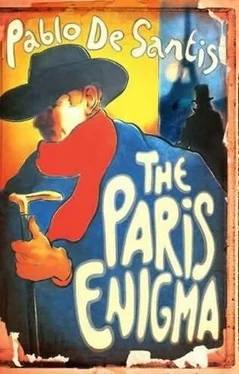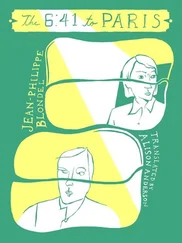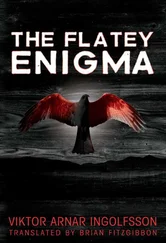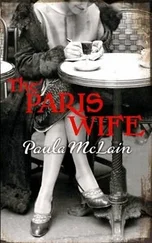“Mr. Huraki was the manager of a bank in the city of S. I won’t say the name of the city. In the spring it’s overrun with grasshoppers, but the inhabitants of the region refuse to kill them, believing they are good luck. A large sum of money disappeared from the bank; Mr. Huraki was not accused of stealing it. When the police showed up at his office they found no evidence that incriminated him, and the only thing that drew their attention to him was that Huraki was extremely nervous and accidentally stepped on a grasshopper that had come in through the window. Huraki’s accountant, Mr. Ramasuka, whose reputation was spotless up until that point, was put in prison. He confessed to nothing, nor did he accuse anyone else; he spent the years he was locked up reading the old masters.
“Time passed. Ramasuka finished his sentence. By then Huraki was the director of a bank in Tokyo. Ramasuka was determined to take his revenge, but he couldn’t imagine himself brandishing a sword or taking up a firearm. All that reading, all that thinking he had done wasn’t to fill his head with ideas, but rather to clear his mind of trivial ideas and meaningless prejudices. He had learned to see what others overlook. Taking advantage of an open window, he entered Huraki’s house one night: he didn’t touch a thing; he just left a grasshopper in the middle of the room, on top of the tatami. Before dawn, the grasshopper’s singing awoke Huraki. The banker instantly remembered a verse by a poet from his city (this memory was part of Ramasuka’s plan):
The grasshopper you killed in your dream Sings again in the morning.
“Huraki knew that he had been discovered. He killed himself that very night by drinking poison.”
The waiter, who had served wine to the detectives and water to the assistants, as dictated by The Twelve Detectives’ protocol, offered a glass of wine to the old detective, who refused it.
“Thus Ramasuka established the tradition of the grasshopper hunters: men and women capable of killing with insinuations, signs, invisible traces. But these warriors need a symmetrical oppositional force. I am part of that force. We don’t send them to prison, of course, because no judge legislates on grasshoppers and butterf lies and poems with secret meanings. But we write and publish our verdicts, and we often drive those responsible to disgrace, exile, silence, sometimes death. But I wonder: what if the enemy is completely imaginary? What if I perceive this enemy-these men and women that conspire in a tradition of subtle murderers-only in my mind? What if I become the murderer by exposing them?”
With small steps Sakawa moved out of the center of the room. Magrelli pointed mockingly at Arzaky, who was seated in an armchair and seemed to be either concentrating very intensely or sleeping.
“Well, Arzaky, you are the one who organized all this. Now you’ve got some objects for your glass cases. Which one will you choose to represent our profession? Incomplete jigsaw puzzles, paintings that fuse fruit and faces, a Greek monster and an inquisitive sphinx, Aladdin’s blackboard, a blank page. Which one will it be?”
Arzaky held back a yawn.
“He who speaks last always has an advantage: the sound of his voice still echoes. But apart from that, I choose Sakawa. I also fear that all investigation is a blank page.”
In spite of my exhaustion, it took me a while to fall asleep. I was surrounded by unfamiliar things, and my mind tried in vain to adapt to the continuous introduction of new ideas, people, and settings. Sleep refused to come, because there were too many things to dream about. I thought about what was said at the meeting: the detectives’ statements, the assistants’ covert remarks. Time and time again I imagined myself escaping the outer circle of the satellites, and walking with sure steps toward center stage. I was immensely lucky to be an acolyte, to have gotten to meet The Twelve Detectives, and that was enough for me during the day. But at night I wanted more.
I finally slept for several hours, although I had the feeling that I had barely shut my eyes. I was awoken by noises outside the room: people running, and then doors slamming and voices. I washed up, shaved off my shadow of a beard, and dressed. I went out into the hallway still adjusting the knot in my tie. Linker, Tobias Hatter’s assistant, bumped into me and kept running without saying a word, as if he had collided with one of those room service carts. Benito came charging up behind him.
“They’ve killed Louis Darbon,” gasped Benito as he passed me.
I thought I must still be dreaming, nobody could have killed one of the detectives. Weren’t they immortal? Weren’t they immune to silent swords, to ice darts shot through locks, and perfect roses with poisoned thorns?
I followed them down the stairs and then through the street. The morning was cool. I had taken the precaution of bringing my vicuña poncho. I secretly regretted having missed breakfast; it’s the only thing I like about staying in hotels. The assistants had all left Madame Nécart’s hotel at almost the same time and were running toward the entrance to the fair. We would bunch up together, looking like a group of long distance runners, and then we would spread out again, separated by the obstacles posed by the future World’s Fair: carts that carried materials to the tower, an iron cage that held a rhinoceros, fifty Chinese soldiers as still as statues awaiting the orders of an absent captain.
It took us a full twenty minutes to reach the foot of the forged iron tower. Journalists and photographers pushed each other, jockeying for position, in some sort of collective dance. The morgue ambulance waited to one side, pulled by stolid, pensive horses.
I wanted to see the corpse, but the crowd was impenetrable. Arzaky made his way over to me, shouting.
“You, the Argentine, come here.”
I elbowed my way over to an area that was accessible only to a chosen few. I wouldn’t have been able to break through the crowd if Arzaky’s voice hadn’t cleared the way, pulling me toward him like a rope. The photographers’ f lashbulbs exploded over the dead man’s face and the air was filled with the bitter smell of magnesium.
“Now I have a case, but I don’t have an assistant. I am the only detective without one. That may be a custom in your savage country, but in my city it is an oddity. I want you to work with me. Observe everything carefully. Any comment that occurs to you, make it: there is no greater inspiration for a detective than the frivolous words of the hoi polloi.”
“What happened?”
“Darbon was investigating the tower’s opponents, who had recently sent hundreds of anonymous letters and caused some minor incidents. He came here last night, alone, following a clue; he fell from the second platform. We don’t know anything more. Do you accept?”
“Do I accept what?”
“Working as my assistant.”
“Of course I accept! ” I exclaimed, surprised. Without meaning to I had shouted my reply and, in spite of the racket, everyone turned to look at me. I had become an acolyte thanks to Craig, who had sent me to Paris; thanks to Alarcón, who gave his life; and thanks to Arzaky, who accepted me-but also thanks to Darbon, who was now being lifted off the ground by the morgue employees (gray uniforms, f lannel hats) with a mixture of ceremony and annoyance, to be transferred to the realm of deciphering and dissection.
Two hours later we managed to get permission to enter the morgue, leaving behind the journalists and onlookers, who were crowded together behind the railing, waiting for some extraordinary revelation. Arzaky knew the building well. I would have gotten lost in the labyrinthine series of hallways which always turned to the left and stairs which always went down, but the Pole moved forward with broad steps, exuding that crazy joy of a detective on a case. It was as if, with each step, he was taking the world by force. But when he entered the room he lowered his head, as though he were in a cathedral. His face reflected both humility and defiance, like a saint who finds dissipation in temperance, overindulgence in moderation, ecstasy in renunciation.
Читать дальше












